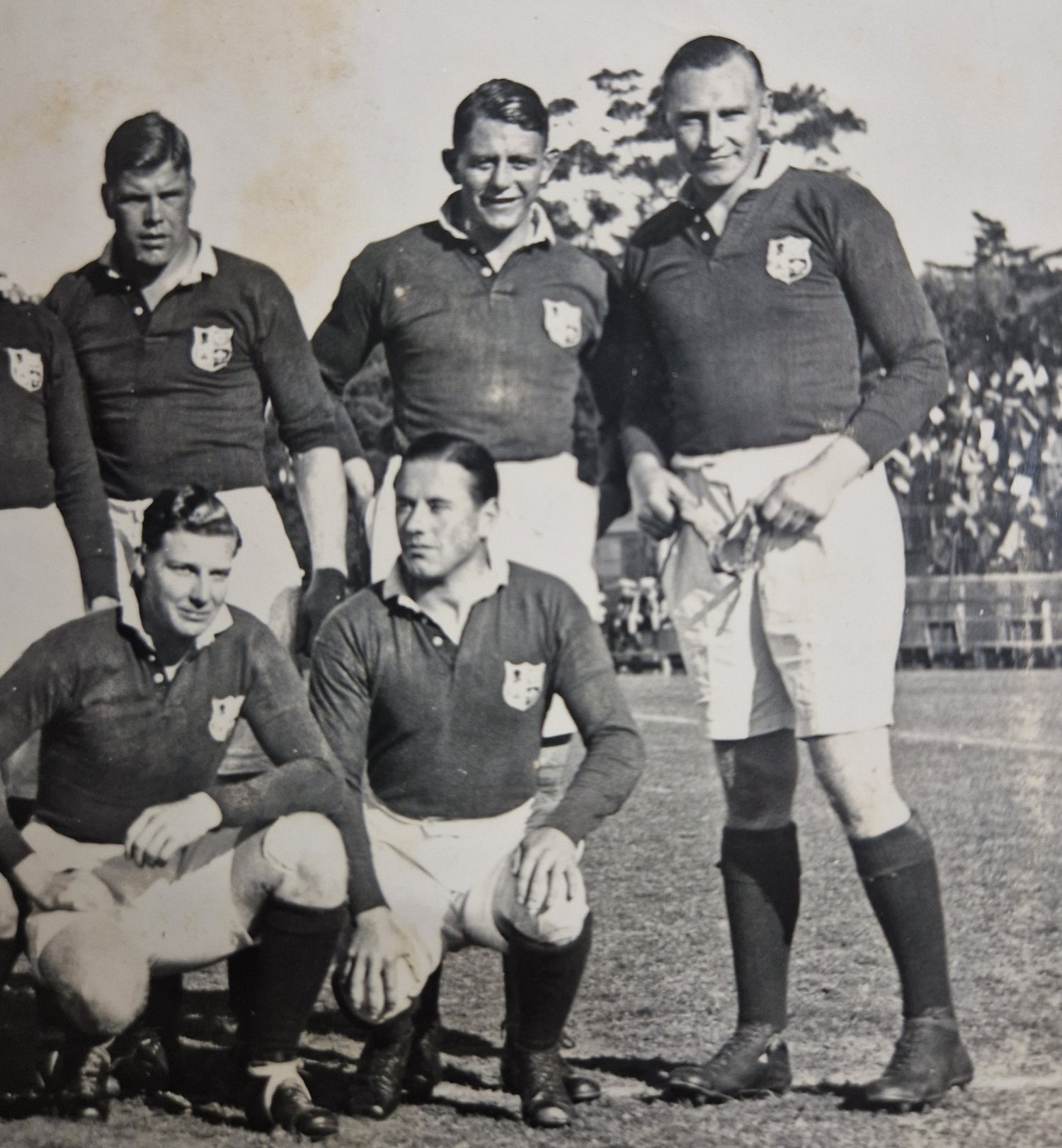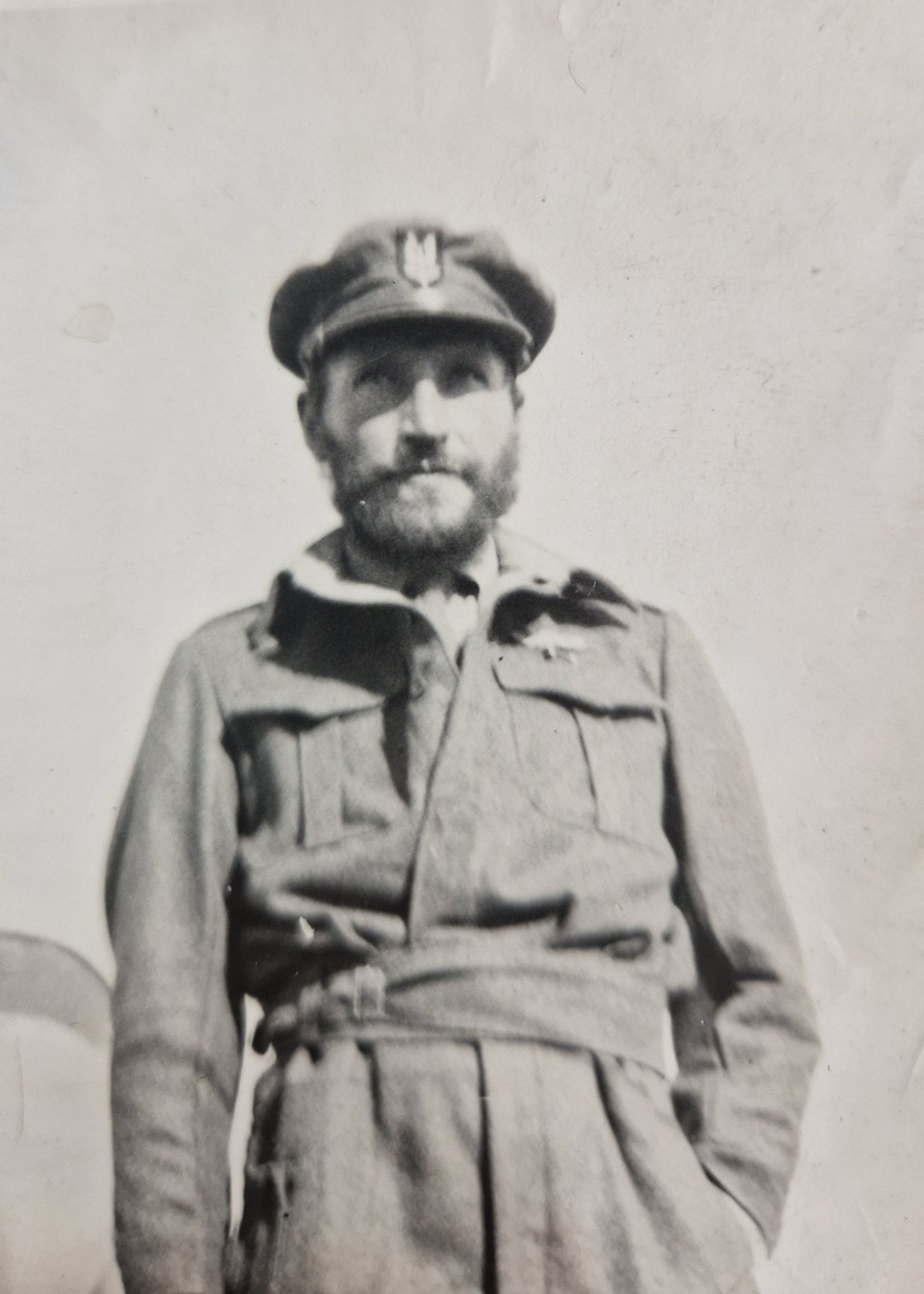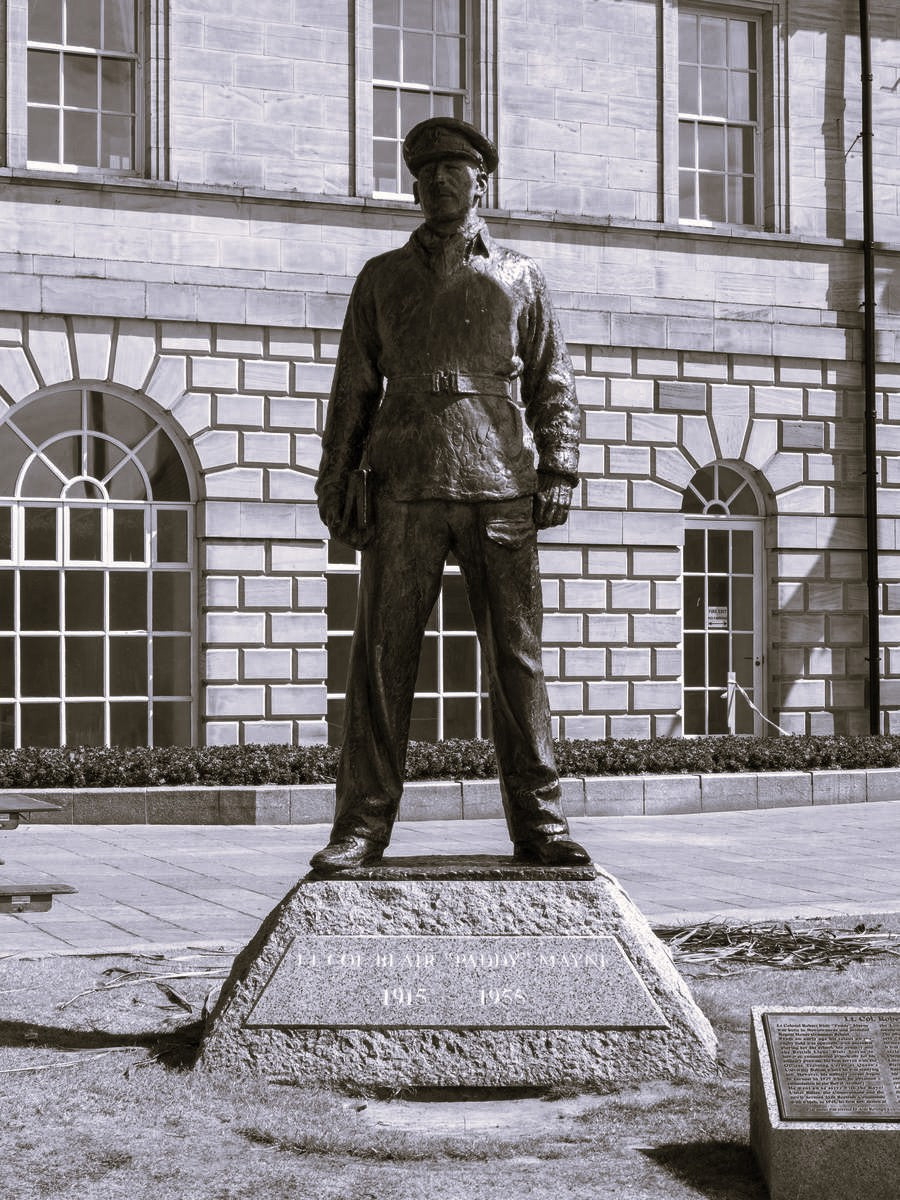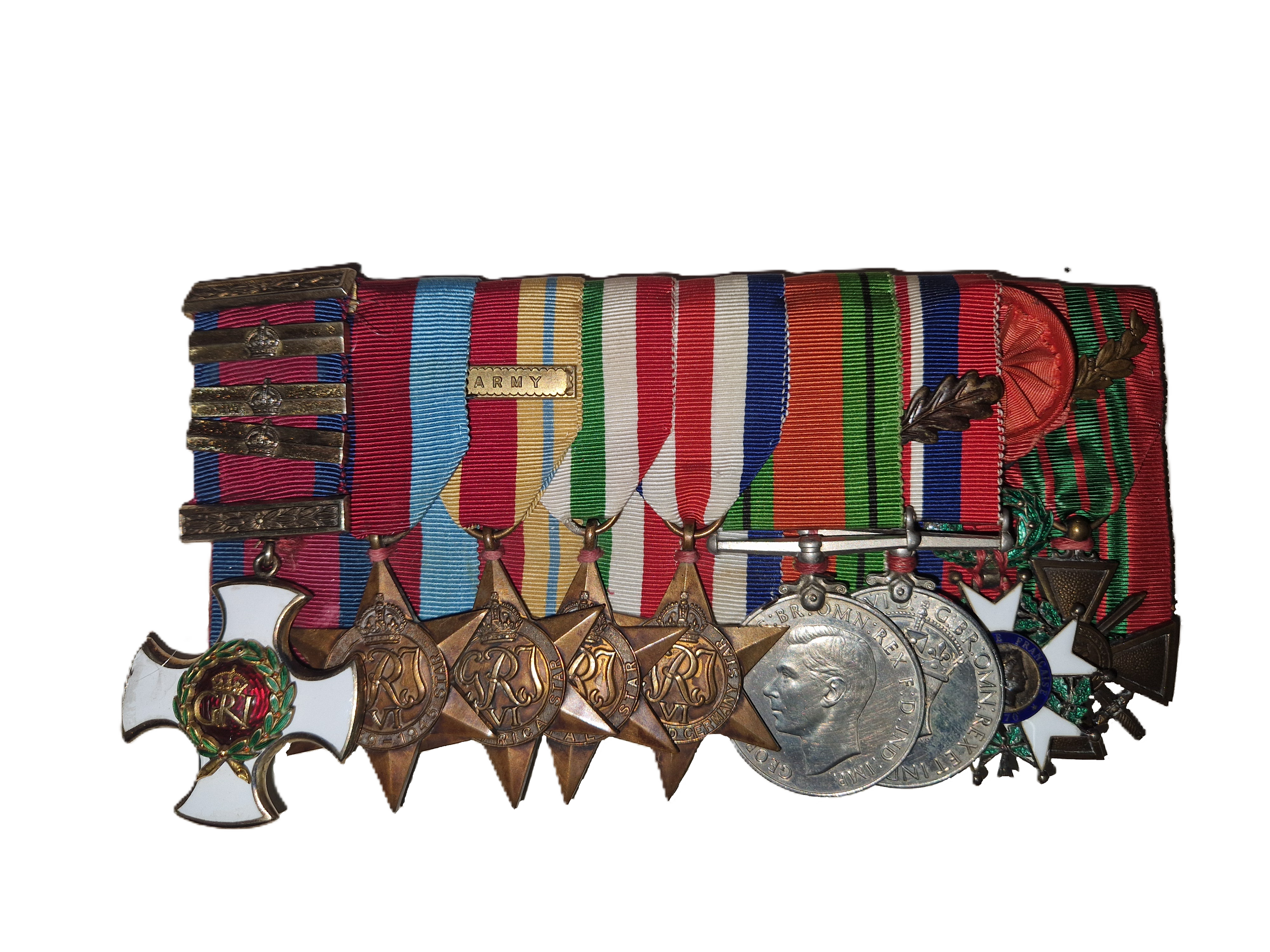Lt Col Robert Blair Mayne DSO & 3 Bars
SOLDIER - ATHLETE - SCHOLAR
LEGEND
The Early Years: Foundations of a Legacy
Blair 'Paddy' Mayne was born on January 11, 1915, in Newtownards, County Down, Northern Ireland. Growing up in a family deeply rooted in the local community, he attended Regent House Grammar School and later studied law at Queen’s University Belfast. During his time at university, Mayne excelled both academically and athletically, showing the same determination on the sports field as he did in the lecture hall. He competed in boxing and other sports while completing his legal studies. After graduating, he pursued a career in law, eventually becoming the Secretary of the Law Society of Northern Ireland, embodying the discipline and commitment that would define much of his life.

Sporting Glory: From the Ring to the Rugby Field
Paddy Mayne’s sporting prowess was not confined to any single arena. He was an exceptional rugby player, proudly representing Ireland and the British & Irish Lions at the highest level. His athleticism was admired by all who saw him play, and he brought a unique blend of power, agility, and strategy to the field. Mayne was also active in boxing during his university years, winning the Irish Universities Heavyweight Championship, a testament to his strength and competitive spirit. In addition to these pursuits, he enjoyed cricket and other sports, showing that his love of competition extended across many disciplines. Whether on the rugby field or enjoying a game with friends, his sportsmanship and drive were evident in everything he did.

The SAS Hero: Behind Enemy Lines
Paddy Mayne's military career began long before the creation of the Special Air Service (SAS). In March 1939, just before the Second World War erupted, Mayne enlisted in the Supplementary Reserve in Newtownards. After training with the Queen's University Officer Training Corps, he received a commission in the 5th Light Anti-Aircraft Battery, Royal Artillery. However, in April 1940, he transferred to the Royal Ulster Rifles, setting the stage for the incredible journey that lay ahead.
With the British Army reeling from the aftermath of Dunkirk, Winston Churchill’s call to form a "butcher and bolt" raiding force came at a pivotal moment. Mayne volunteered for the newly-formed 11 (Scottish) Commando in 1940, where he quickly earned a reputation for courage and leadership. His first major action came in June 1941 during the Litani River operation in Lebanon against Vichy French forces. Despite the chaos and brutality of the mission, in which over a third of the force was either killed or wounded, Mayne’s leadership stood out.
Mayne’s leadership during the Litani River raid, coupled with a strong recommendation from his close friend and fellow officer Lieutenant Eoin McGonigal, brought him to the attention of Captain David Stirling, founder of the Special Air Service. Stirling quickly recognised his potential and recruited him as one of the original members of the SAS, where Mayne would go on to forge his legend in military history.
From November 1941 through to the end of 1942, Mayne participated in numerous night raids deep behind enemy lines in the deserts of Egypt and Libya. His daring tactics were a hallmark of the SAS, with hundreds of German and Italian aircraft destroyed under his command. By 1943, Mayne had risen through the ranks and was appointed to command the Special Raiding Squadron, which he led with distinction in Italy.
In January 1944, Mayne was promoted to lieutenant colonel and became the commanding officer of 1st SAS Regiment. He led the SAS through the final campaigns of World War II, taking part in operations across France, Belgium, the Netherlands, Germany, and Norway. Often working alongside local resistance fighters, including the French Maquis, Mayne’s leadership and bravery continued to shine.

A Poet’s Soul: Beyond the Battlefield
Beyond the battlefield and the sports field, Paddy Mayne had a softer side, a deep love for poetry. This passion was something that stayed with him throughout his life and is an aspect of his personality often overlooked. Mayne’s appreciation for literature and the written word allowed him to express the deeper emotions that were shaped by his tumultuous experiences. His poetic nature reflected a side of him that valued reflection, creativity, and the power of storytelling. This love for poetry not only shaped his worldview but also influenced his outlook on life and even his leadership style, which was marked by both strategic thinking and a sense of empathy and understanding.

A Legacy Written in Courage
By the end of the war, Mayne had become one of the British Army’s most decorated soldiers, receiving the Distinguished Service Order (DSO) with three bars, one of only eight British servicemen to achieve such a feat during the war. His audacious raids, often conducted in Jeeps, were instrumental in disrupting enemy forces, particularly airfields, and he was credited with personally destroying 130 aircraft.In recognition of his efforts, Mayne received numerous accolades, including the French Legion d’Honneur and the Croix de Guerre, making him the first foreigner to receive both honours. Despite these remarkable achievements, it remains one of military history’s great ironies that Mayne was never awarded the Victoria Cross. His abrasive attitude towards some superiors and the unconventional methods of the SAS may have contributed to this omission, although it did not diminish his legacy.In 1945, after single-handedly rescuing a squadron trapped by enemy fire, Mayne was again recommended for the Victoria Cross; however, he received a fourth DSO instead. His bravery and leadership were unmatched, and while many of his peers and historians have since questioned why he was never awarded the Victoria Cross, the final recommendation was ultimately reduced to a DSO under Field Marshal Bernard Montgomery’s authority.
The Heart of the Family: Roots and Fiona’s Story
Blair Mayne’s was a close family, with generations living together in and around Mount Pleasant, the family home in Newtownards, County Down. He remained deeply connected to them throughout his life, no matter how far his military career or sporting achievements took him.
Among his many roles, he was a loving uncle. Blair’s niece Fiona, the daughter of his younger brother Douglas, was an active young girl who loved horses and any kind of outdoor adventure. He adored her, and they shared a bond filled with affection and good humour.
One story in particular has become a treasured family memory. Blair decided to build a henhouse behind the big house at Mount Pleasant and took it upon himself to organise its construction. The first step was laying down a perfectly flat concrete floor. Fiona, just eight years old at the time, stood gazing at the smooth new surface, her imagination running wild with ideas of what it could be.
“What is that for?” she asked her uncle. Blair told her it was a skating rink he was building just for her, and to her amazement, he produced a pair of roller skates. Fiona was over the moon. She put them on straight away and spent hours gliding across what she believed was her own personal roller-skating rink.
It didn’t last long. Soon, the Nissen hut-like walls went up, and a roof was added. Blair, always with a sense of humour, told Fiona it was really to keep her dry while skating. But as the roof went on, the chickens arrived, quickly taking over the concrete floor and bringing an end to Fiona’s skating adventures. But she was not easily discouraged. She simply carried on wearing her skates, wheeling happily up and down the driveway and out the front of the house. You couldn’t keep a good Mayne down.

